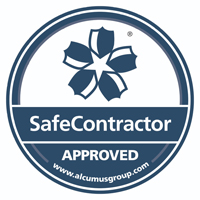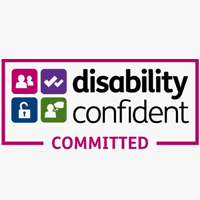The primary aim of the UK Nationwide Ltd Lone Worker Policy is to minimise any potential risk or impact to any individual employee.
Management will ensure that a suitable and sufficient risk assessment is carried out for all locations where lone working takes place. Appropriate control measures will be implemented to protect the health, safety, and welfare of employees.
Many employees work independently and, in most cases, do so without significant risk to their health or safety. For example, employees working alone in office environments and undertaking routine office-based activities generally face minimal or no additional risk due solely to lone working.
UK Nationwide Ltd is committed to providing employees with appropriate training relevant to their specific job roles in order to minimise risks associated with lone working activities.
This policy defines circumstances where lone working is considered acceptable and identifies situations where lone working is deemed inappropriate. These decisions are based on thorough risk assessments. This policy applies to all employees of UK Nationwide Ltd.
While there is no specific legal prohibition on working alone, employers have general duties under the Health and Safety at Work Act 1974 and the Management of Health and Safety at Work Regulations 1992. These require employers to provide safe systems of work and safe working environments, so far as is reasonably practicable.
Employers are also responsible for managing risks arising from work activities. These duties extend to employees, contractors, visitors, and any other persons who may be affected by the Company’s operations.
To ensure staff safety and in alignment with this policy and the Company’s Health and Safety Policy, a valid and up-to-date insurance document must be in place for each working location.
Employees are required to complete and submit a weekly diary or timesheet to the Operations Manager, detailing their locations and working hours.
Although the risks associated with lone working are often minimal, lone workers may be more vulnerable in emergency situations where assistance may not be immediately available.
UK Nationwide Ltd requires lone workers to maintain visual and audible communication with colleagues who are able to provide immediate assistance in the event of illness, injury, or emergency.
In accordance with guidance issued by the Health and Safety Executive (HSE), lone working should be avoided in confined spaces where there is a risk of inadequate ventilation, including tanks, manholes, pipes, ducts, flues, enclosed basements, or laboratories using flammable substances. UK Nationwide Ltd does not anticipate undertaking work in such environments.
Most UK Nationwide Ltd services are delivered at client premises. In these circumstances, Supervisors will conduct thorough risk assessments of the working environment, including safe access and exit arrangements.
Where higher-risk activities are undertaken, such as Physical Intervention, Disengagement, or Holding techniques (as outlined in job descriptions), appropriate insurance cover and risk controls will be in place.
Risk assessments, referred to as “visual risk audits,” must include the following checks:
• Safe access and exit arrangements
• Functioning fire safety provisions, including fire alarms and emergency lighting
• Employee knowledge of emergency procedures, including fire alarm activation
• Effective communication arrangements, including phone access
• The lone worker’s ability to operate equipment controls and emergency shutdowns
• Access to a currently certified first aider
• Availability of a first aid kit
• Any requirement to lift or handle heavy or awkward items
• Adequate supervision arrangements at other times
• Consideration of employee health conditions that may increase risk
• Additional safety measures such as regular check-ins or lone worker alarms
• Identification of any other foreseeable risks, including DSE compliance and environmental factors such as lighting or noise
Any risks identified during the assessment process must be documented and reviewed periodically in accordance with UK Nationwide Ltd procedures.
Employees are expected to respond to telephone calls and email communications within 12 hours, except during periods of approved leave. This requirement supports employee safety and operational awareness.
Work-related mobile phones must have voicemail enabled to allow message retrieval when calls cannot be answered.
Guidance on Manual Handling and Risk Assessments is available from UK Nationwide Ltd Head Office.
The safety and wellbeing of all employees is a priority for UK Nationwide Ltd. The Company requires full compliance with this policy and related procedures to ensure that lone working is carried out safely at all times.




“The staff provided consistently meet our site standards for presentation, conduct, and guest interaction. Communication has been clear, and any issues are addressed quickly and professionally.”
“UK Nationwide has been reliable and responsive, particularly during busy periods and short-notice cover. Their teams understand hotel standards and integrate smoothly with our day-to-day operations.”
“We’ve worked with UK Nationwide across multiple service areas, and the support has been dependable, well managed, and easy to work with. They take a practical, hands-on approach.”
We have had the privilege of working with
some great people and companies over the years.










We’re always looking for reliable professionals to join our London-based teams.